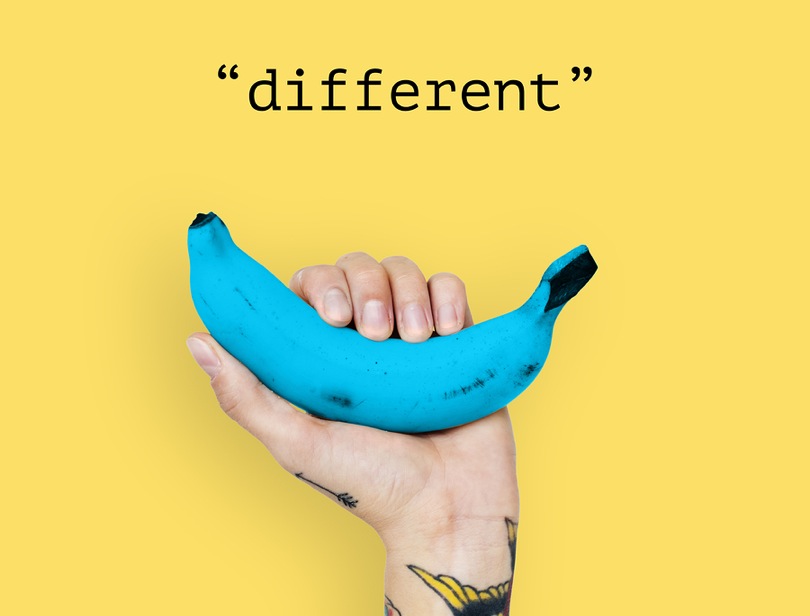
Are you continuously trying to create new social media posts, Instagram photos, blog posts, articles, press releases, and promotional strategies? Have you paid attention to your creative process when creating these things?
When you have an idea, you’re driven by an inner force. Creative people get into their own world, and we don’t know what happens in their heads. What we do know, however, is that creativity means nothing without persistence and effort. Plus, some habits. Creatives have specific habits that help them turn creativity into a daily routine.
Here are 18 habits of creative people. They can inspire you to do things differently and find a way to keep the creative process going.
1. Me time
“The more powerful and original a mind, the more it will incline towards the religion of solitude.” – Aldous Huxley
When you want to understand your ideas and get deep into your mind to test them, you’ll naturally gravitate towards solitude. Does this mean you have to be an introvert to be as creative as you possibly could? No. Extroverts can be just as creative as introverts. The key to success is in the balance.
Creatives need both socializing and solitude at different times. They depend on the surroundings if they want to get better ideas, but they also need their me time to reconsider their own opinions and dig deep into their creative hub.
2. Risk
An idea may seem silly at the beginning. When you first tell it to someone, they may laugh at you. Do you think that Jack Dorsey and his team had it easy when they got the idea of Twitter? Of course not! It was new. It was risky. Fortunately, they took the risk.

3. Collaboration
Maybe a painter could work alone, but even they need to get inspired by other people. There’s no great novelist who didn’t rely on an editor and publisher. Jack Dorsey didn’t create Twitter alone. For a modern creative business, you need to get an outside perspective, which might shift or support ideas.
4. Preparation
If you thought that the most creative people could start creating in a matter of seconds after getting an idea, you were wrong. Dan Pearce, a resume writer at Careers Booster, explains that a creative project needs systematic work.
“When we have an idea, we have to find the existing thoughts and patterns that led to it. When I write a new project, I have to connect the dots in my own mind, and then connect them with the ideas of the client. That process takes time and effort. Most of all, it takes planning to bring everything together,” – he says.
5. Conservation of ideas
Sometimes you get an idea in the middle of the night. You think: “this is great; I should start doing something about it.” In the morning, you start your usual day and continue with the current project. Later, you’ll be left only with the impression of your idea. You know you had something, but you lost a particular element that was very important: the excitement.
That’s why creative people write down their ideas. Every single one of them. Have you seen Dostoevsky’s notes and doodles? The writer used to write down all ideas before transforming them into the novels we still read and love.
6. Movement
Yes, it’s a habit. Haruki Murakami, one of the most appreciated and inventive novelists of our time, commits to an intense running schedule. This is what he said in an interview for the Paris Review, when asked about the structure of a typical workday:
“When I’m in writing mode for a novel, I get up at 4 a.m. and work for five to six hours. In the afternoon, I run for ten kilometers or swim for fifteen hundred meters (or do both), then I read a bit and listen to some music. I go to bed at 9 p.m.”
You need physical strength to carry the burden of creativity. When an idea tortures you, you’ll spend many hours and days working on it. Just like Murakami, you need a habit that brings you to a healthy, energized body.
7. Routine
“I keep to this routine every day without variation. The repetition itself becomes the important thing; it’s a form of mesmerism,” – Murakami continued in the same interview. “I mesmerize myself to reach a deeper state of mind.”
Routines are not as bad as we think they are. They are not killing our creativity; they are supporting it.
8. Flexibility
Creativity is not a 9-to-5 job. Let’s take Murakami’s routine as an example again. Did you notice something unusual there? He wakes up at 4 a.m. and works in the very early morning. He probably experimented a bit and found that his mind works best in that chunk of the day.
Analyze your own circadian rhythm to find out how you function in different parts of the night and day. Then, follow the lead and create when you’re most inspired.

9. Wondering
“People love Facebook. Hmm, I wonder why. I wonder how I could use their love for social media to create something new for them.” Do you see the point in this mental concept? Curiosity is what drives ideas.
Creative people have a habit of intense conversations with themselves. They wonder, and they try to find the answers within.
10. Observing
The world is your greatest inspiration. Marcel Proust’s incredible memory was triggered by a madeleine. “I had soaked a morsel of the cake. No sooner had the warm liquid mixed with the crumbs touched my palate than a shudder ran through me and I stopped, intent upon the extraordinary thing that was happening to me.”
This was no ordinary cake. Nothing is ordinary in this world! A single ray of light can inspire you to create something beautiful; you just need to notice it. Observe!
11. Reflection
Whenever you see something interesting, you should wonder if you could apply it to what you’re doing. If you’re in the marketing niche, you can get inspired by novels, paintings, nature… anything. Reflect on your impressions and think how you can accumulate new ideas from them. Then, write those ideas down.
12. Daydreaming
What’s creation without imagination? Routines are good, and commitment is even better. But, sometimes you need to unleash your mind, so you can observe how it works when you don’t control it. You may find beautiful ideas hidden in there.

13. Embracing obstacles
Have you heard about posttraumatic growth? All people suffer, but some of them find ways to express the experience from trauma through beautiful creations.
Posttraumatic growth is characterized by greater personal strength and identification of new possibilities. When you’re at a low point in your life, try to find those new possibilities. Turn the struggles into a foundation for growth.
14. Traveling
Hemingway used to live in different countries throughout his life. He needed to meet different people and explore their culture and drinks, lots of drinks.
Traveling opens your viewpoint. It makes you see, explore, experience, wonder! That’s what creativity is all about, isn’t it?
15. Accepting Failure
Resilience is an important personal strength that keeps creatives going. The creative process often comes with repeated failures. You need to test different approaches, and many of them will be total failures. Then, you’ll find the one that works.
16. Self-expression
What is creativity, anyway? It’s a form of self-expression. Take Allen Ginsberg’s tip: “Follow your inner moonlight; don’t hide the madness.”
You get opportunities to express your unique ideas, desires, and character through every single project you work on. Use it!
17. Losing track of time
Have you had a creative moment so great that you couldn’t sleep, eat, or do anything else for days? You lost track of time and simply followed the flow. Yes, creativity can do that to you. Mihaly Csikszentmihalyi gave an inspiring TED talk on that flow.
“There’s this focus that, once it becomes intense, leads to a sense of ecstasy, a sense of clarity: you know exactly what you want to do from one moment to the other; you get immediate feedback. You know that what you need to do is possible to do, even though, difficult, and sense of time disappears, you forget yourself, you feel part of something larger. And once the conditions are present, what you are doing becomes worth doing for its own sake.”
18. Mindfulness
We don’t know exactly when meditation originated, but we can assume that people had that ability and need to work with their own minds since… forever. Today, we have scientific proof that meditation helps us learn and remember, but it also makes us introspective and self-aware. Do you notice the connection with creativity?
A great number of Fortune 500 companies, including Apple and Google, offer mindfulness and meditation classes for their employees. Why? Because meditation supports the creative process. It brings you to a place where you’re alone with your thoughts, and you can finally understand yourself. The process of such achievement is long and needs hard work. That’s why you need to turn this into a habit.

Wrap
Creativity is a blessing, but it can also become a torture if you don’t know how to express it. When you adopt certain habits, you’ll be able to support the process and find the best way to bring it to action. Hopefully, adopting the habits of creative people from this article will lead you to a better, more creative state of being and working.
Business & Finance Articles on Business 2 Community(91)









